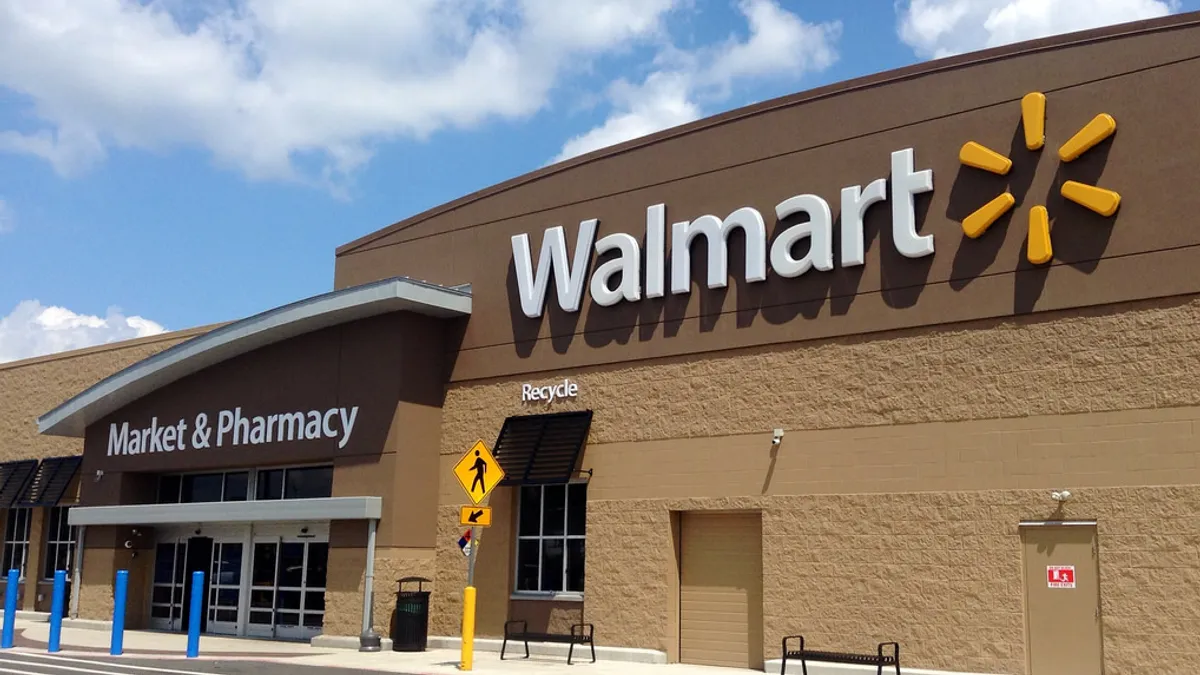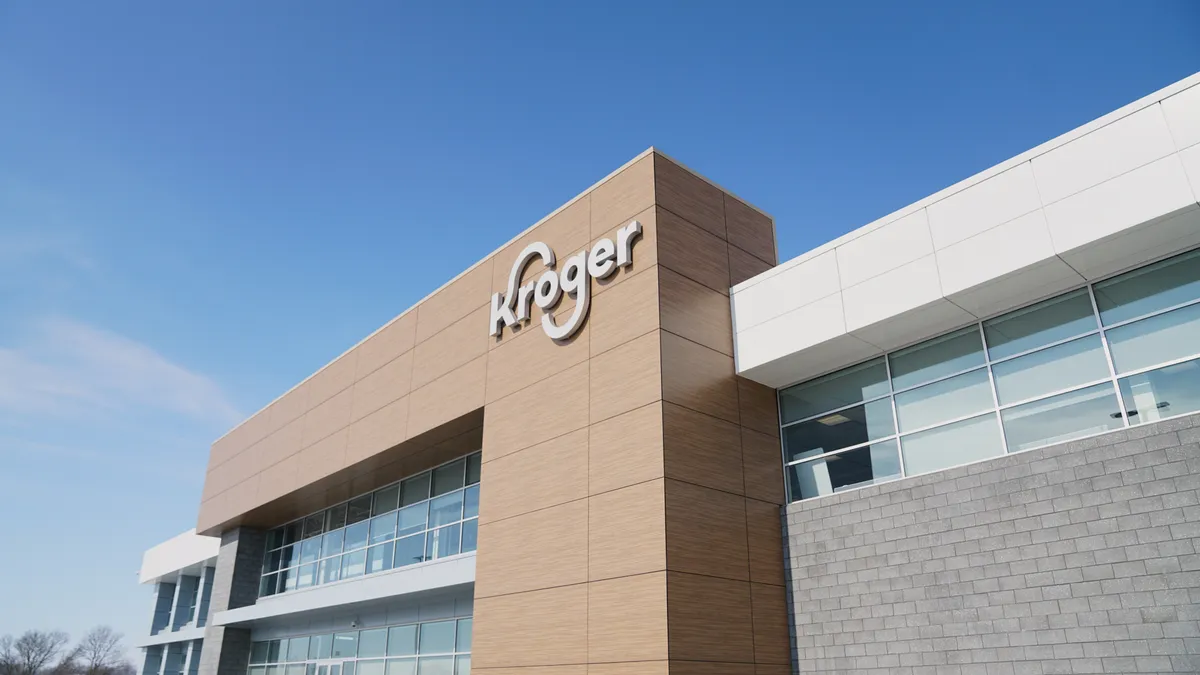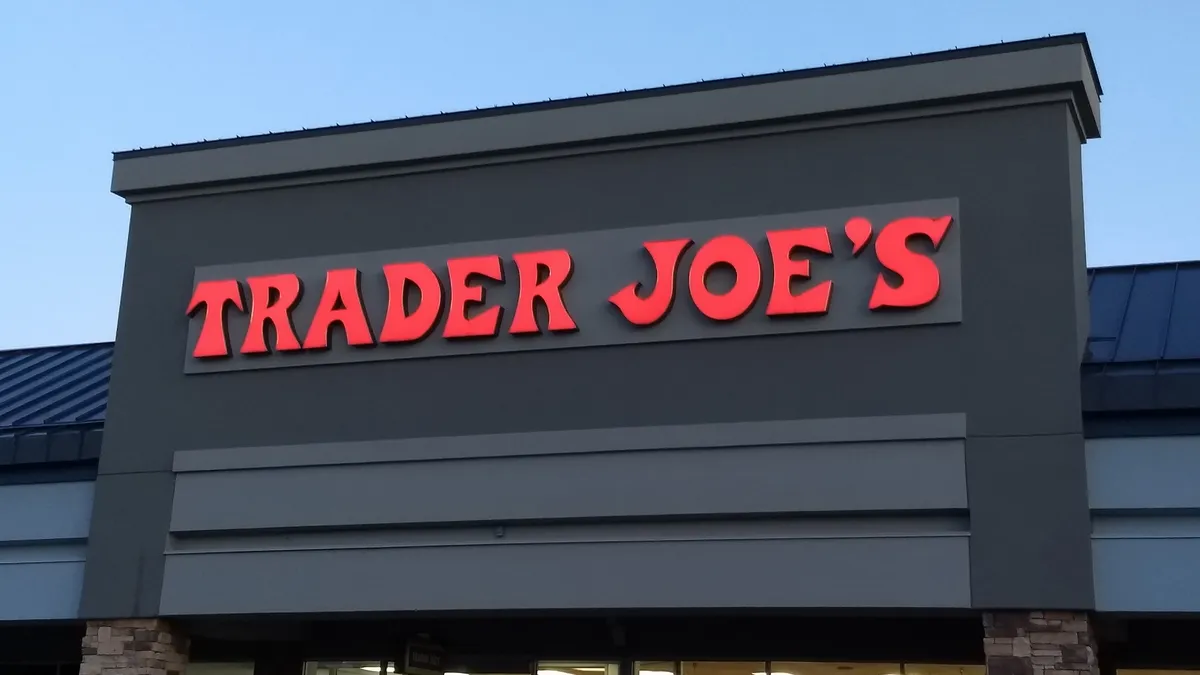Just as Walmart was starting to flex its muscles in the modern retail age, the chief of its resurgent U.S. business handed in his notice.
Greg Foran, CEO of Walmart U.S., is leaving for a New Zealand airline at the end of January, Walmart announced Thursday.
To replace him, Walmart reached into its bench. John Furner, currently the CEO of Walmart's Sam's Club business, is set to take on Foran's role effective Nov. 1.
Foran's departure caps off a rocky news week for the staid retail giant, which earlier this week announced it was selling off vintage-themed online retailer ModCloth, some two years after buying it to enrich Jet's value proposition. Another trendy digitally native acquisition, Bonobos, said this week it was laying off staff.
The timing of each may be coincidental, but they are, together or apart, signals of transition in Walmart's massive domestic business.
A 'clear loss'
Foran joined the company in 2011, starting with Walmart's international business and serving at one point as chief of its China business.
He took on the role of Walmart U.S. CEO in 2014. The years prior to his joining brought sluggish or negative comparable sales in the U.S. unit. It was a rocky time when he came on, full of challenges on several fronts. Foran went to work reducing prices and improving customer service, including by giving store workers a raise.
The turnaround efforts have been steadily gaining traction. This year, the fruits of investments under Foran are as clear as ever. Walmart has posted solid numbers in the first and second quarters of the year, with a healthy operating performance that analysts pin on the company's focus on its stores, digital technology and the blending of the two.
Foran is credited with leading that turnaround. "Greg's ability to innovate, whether it's making our stores a competitive advantage in an omnichannel environment or equipping associates with next generation technology and training, has helped position us for the future," Walmart CEO Doug McMillon said in a press release. "The results have been impressive — every quarter he led Walmart U.S. it has had positive comps."
Wells Fargo analysts led by Edward Kelly described Foran's departure as a "clear loss" to the retailer, noting that he "clearly played a major role in the revival of the U.S. business."
"The results have been impressive, as the segment now has significant momentum and certainly seems poised to continue its share gains," the analysts said in a client note emailed to Retail Dive.
The new U.S. boss
Kelly and his team also noted, however, the depth of experience Foran's replacement brings to the position. Furner, who became CEO of Sam's Club in 2017, is a 26-year vet of Walmart. He started with the company as a part-time garden department associate at a store in 1993.
As Telsey Advisory Group analysts led by Joseph Feldman note, Furner led a turnaround as well, at Sam's Club, where he focused on closing underperforming stores, boosting the private brand business, improving operations and beefing up the warehouse retailer's in-store technology.
"Although Walmart US is almost 6x larger than Sam's Club, Mr. Furner's vast experience at Walmart, from both an operational and a merchandising perspective, should make for a smooth transition to leading the largest Walmart segment," the analysts said. "Importantly, Mr. Furner is a believer in technology and omni-channel (played a key role in Scan & Go, BOPIS, self-checkout, and delivery at Sam's Club), which should help drive continued innovation and growth at Walmart US."
The Wells Fargo team also noted that, "Furner seems well qualified and the division's current performance and clear strategic plan should help ease him into this role."
Both analyst teams pointed to a solid strategic vision at Walmart for its U.S. team already laid out and being executed. That would seem to make Furner's job easier as he takes on the much larger Walmart U.S. unit.
E-commerce shakeup
While Walmart steamrolls ahead with its U.S. business, signs have emerged of an about-face in the retailer's burgeoning online unit.
Shortly after taking on Jet, the largest e-commerce acquisition at that time, Walmart — with digital chief Marc Lore at the helm — began snapping up trendy online and digitally native brands to hitch on to Jet to improve its offerings. Those included ModCloth, Bonobos, Eloquii and Moosejaw.
The company also announced JetBlack, a text-based concierge service, which was supposed to be the next thing in convenience for wealthy urbanites.
That initial strategy now appears to be unraveling. Walmart this week said it sold ModCloth to a financial services firm. Bonobos confirmed layoffs in its ranks — dozens of staffers, according to the Wall Street Journal. And according to multiple reports, Walmart is in talks to sell, spin off or find a partner for JetBlack, which according to the Journal is losing $15,000 on each of its members, of which it reportedly has 600.
Jet itself has been folded into the larger e-commerce unit at Walmart and the company has pulled back on marketing for the e-tail site that Lore co-founded.
As Bill Duffy, director of research with Gartner L2's big box retail team, told Retail Dive in an interview, "Jet was built on a lot of marketing dollars to drive new customers." But Walmart has reduced those dollars as it turns its focus on its namesake e-commerce platform, Walmart.com.
As a result, traffic to Jet has fallen steeply. In September 2017, the site had 23 million visitors; this September — two years later — Jet had just 1.5 million visitors, Duffy said, citing Gartner L2's data. In other words, Jet lost around 93% of its traffic. Meanwhile, Walmart.com had around 300 million visitors in September.
"What we're seeing is Walmart making strategic decisions to focus on its core business," Duffy said. "And they're using their stores in particular to drive success," he added, pointing to store fulfillment of Walmart.com orders, especially grocery, as a driver of traffic and growth in the digital business.
At the time of the Jet acquisition, Walmart knew it was getting technology and know-how that could boost its namesake site as well. But McMillon also trumpeted Jet's millennial urban audience and said then that Walmart's backing would "enable the Jet brand to be even more successful in a shorter period of time."
That clearly didn't pan out, though Walmart still sees a role in Jet to reach urban shoppers its massive stores currently don't.























